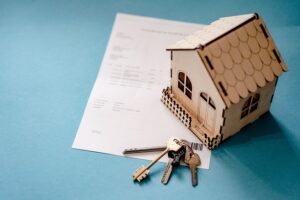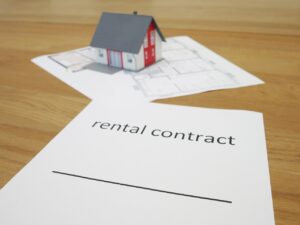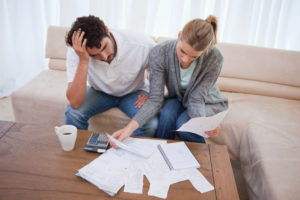 How to Handle Bankruptcy If You’re a Landlord
How to Handle Bankruptcy If You’re a Landlord
If you’re a landlord dealing with financial difficulties, you’re not alone. Between rising interest rates, maintenance costs, vacancies, and legal issues with tenants, many property owners find it harder and harder to stay afloat. And bankruptcy for landlords comes with unique considerations to understand early on.
No doubt, bankruptcy can offer relief. But there’s some specific things to know about how to navigate your bankruptcy when you own rental property.
First, Know Your Bankruptcy Options
There are two main types of personal bankruptcy for individuals, including landlords: Chapter 7 and Chapter 13.
- Chapter 7 bankruptcy wipes out unsecured debts like credit cards and medical bills. If you qualify, it can offer a quick financial reset. However, it may require you to give up non-exempt assets. Depending on your situation, that might include some or all of your rental property.
- Chapter 13 bankruptcy lets you keep your property while reorganizing your debt into a 3- to 5-year repayment plan. This can be helpful if you’re behind on your mortgage or want to prevent foreclosure.
Choosing the right chapter depends on your income, equity in your rental property, and whether you’re trying to keep the property or walk away from it. In other words, it depends on you and your goals – and that’s exactly how we focus the conversation at our firm.
 What Happens to Your Rental Property?
What Happens to Your Rental Property?
One of the biggest concerns landlords have is what happens to their rental property in bankruptcy.
In Chapter 7, Tennessee has a homestead exemption for your primary residence. But this usually doesn’t apply to rental or investment properties.
As a result, the bankruptcy trustee may want to sell your rental property to repay creditors if your equity is more than your allowed exemption. If your rental property has little or no equity, you might be able to keep it. We can help you talk through both of those possibilities and what to expect.
In Chapter 13, you can keep your rental property as long as you include it in your repayment plan and continue making payments on the mortgage. This option is great for landlords who are behind on payments but want to catch up and retain ownership.
Every case is different, and a trusted bankruptcy attorney will make sure you understand your options and risks.
 Dealing with Tenants During Bankruptcy
Dealing with Tenants During Bankruptcy
If you file for bankruptcy as a landlord, your tenants may be affected. But it won’t necessarily impact them the way you might think.
For ongoing leases, in many cases, the lease agreement stays in place. You’ll be asked whether you want to “assume” (keep) or “reject” the lease. If you assume the lease, you have to continue meeting its terms.
Then there’s collecting rent. If you file Chapter 7, the bankruptcy trustee may collect rent themselves if the property becomes part of the bankruptcy estate. In Chapter 13, you usually maintain control of rent collection.
Lastly, if you’re trying to evict a tenant, the bankruptcy’s automatic stay might temporarily delay the process. But it can still go forward with court permission. It all depends on the situation.
Bankruptcy doesn’t mean you lose all your rights as a landlord. But it does add complexity, so it’s important to act carefully and within the law.
 How to Prepare Before You File
How to Prepare Before You File
Here are a few key steps to take if you’re considering bankruptcy as a landlord:
- Gather all property documents, including deeds, mortgage statements, leases, and tax records.
- Figure out the equity in each property.
- List all your rental income and expenses for each unit or building.
- Consult with a bankruptcy lawyer who understands landlord-tenant dynamics.
You’ll need a clear picture of your assets, debts, and rental obligations to file successfully and protect your interests. Our experienced bankruptcy attorneys can also help you gather this information and make sure you have everything you need.
 Let’s Talk About Your Next Steps
Let’s Talk About Your Next Steps
Bankruptcy isn’t just for people with credit card debt. It’s a valuable tool for landlords trying to regain control of their finances. Whether you want to keep your rental property or walk away from it, I can help you find the best path forward.
Call 901-327-2100 today or contact me online for a free consultation.
Let’s talk about your situation and how bankruptcy could offer the relief you need to keep moving forward.
